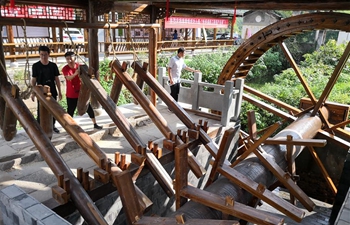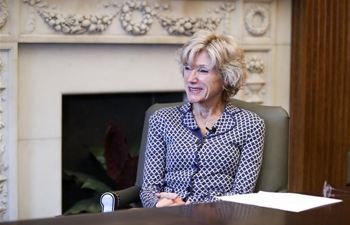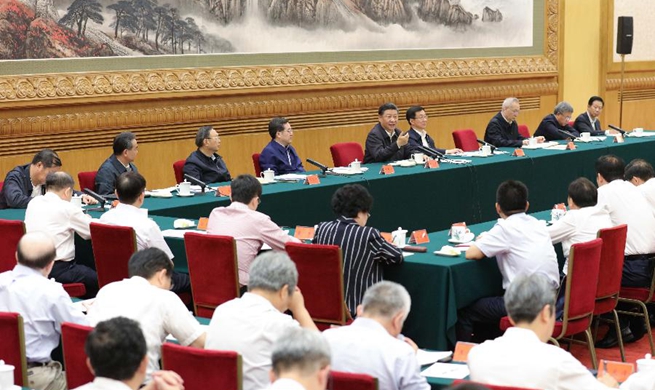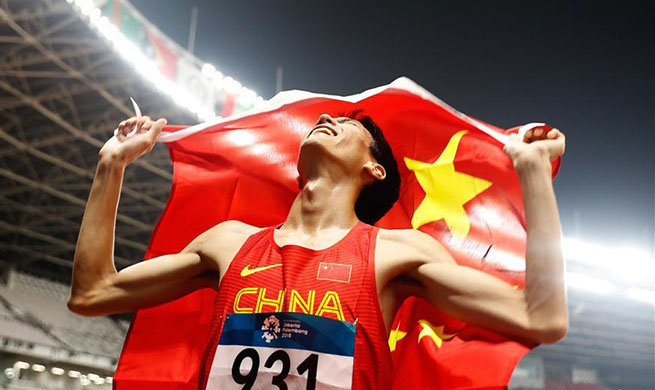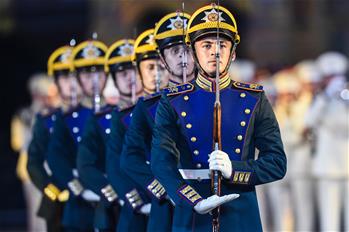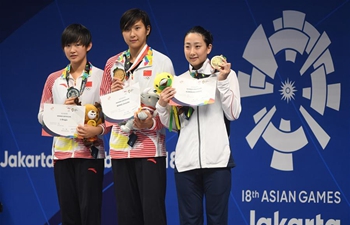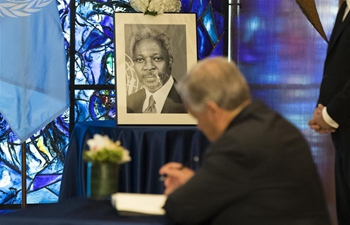by Ahmed Shafiq, Abdel Maguid
CAIRO, Aug. 28 (Xinhua) -- The ties between China and Egypt are "at an unprecedented stage" in the history of their bilateral relations, an Egyptian expert on Chinese affairs said.
"I am very optimistic about the Egyptian-Chinese relations, because their future is promising," Hassan Rajab, dean of Al-Alsun College at Suez Canal University, said in an interview with Xinhua.
The Egyptian academic added that the election of Abdel Fattah al-Sisi as Egypt's president was a milestone in upgrading relations with China, which was one of the first countries he visited when he took office in 2014.
Sisi is scheduled to participate in the Beijing Summit of the Forum on China-Africa Cooperation (FOCAC) slated for Sept. 3 and 4.
The FOCAC Beijing summit will be held under the theme "China and Africa: toward an even stronger community with a shared future through win-win cooperation."
He pointed out that the cooperation between Egypt and China is "fruitful" and received a strong boost after Chinese President Xi Jinping's historic visit to Cairo in January 2016, which upgraded bilateral relations to the level of strategic partnership.
Egypt is the third largest African trading partner with China, as trade volume between the two sides registered at 10.87 billion U.S. dollars in 2017, according to Egyptian Ministry of Trade and Industry.
While the number of Chinese citizens visiting Egypt hit a record high of 300,000 in 2017, says Egyptian Ministry of Tourism.
Rajab, who is also the director of the Confucius Institute at Suez Canal University in Egypt, praised economic cooperation between Egypt and China and expected more joint projects between the two countries in the near future, such as cooperation in Egypt's new administrative capital which is under construction.
Since late 2016, Egypt has been going through a strict three-year economic reform program, starting with local currency floatation to contain dollar shortage followed by austerity measures, energy subsidy cuts and tax increases.
The liberalization of the Egyptian pound's exchange rate encouraged the International Monetary Fund to support Egypt's economic reform plan with a 12-billion-dollar loan, two thirds of which have already been delivered to the North African country.
"President Sisi follows the Chinese approach to solve many problems in Egypt. For example, China has carried out mega infrastructure projects; Egypt is now building a giant road networks which is a lifeline as more projects will be built on both sides of these new roads," Rajab said.
Rajab strongly praised China's foreign policy, saying it is unbiased and respects the sovereignty of others, adding that China believes in peaceful coexistence and works to maintain world peace.
"The Chinese people, by their very nature, hate wars and conflicts, and China, with its culture and its pursuit of peace, can influence others," Rajab noted.
Rajab said that China is attracting the minds of the world and winning their hearts. "Chinese politics are creating friends and making them grow and develop. What is happening in Africa is a great example."
He also expected the Belt and Road Initiative to succeed, especially as China adopts a win-win approach with any countries, "unlike the United States, which carries the 'America First' slogan."
The initiative, proposed by China in 2013, refers to the Silk Road Economic Belt and the 21st Century Maritime Silk Road, which aim at building a trade and infrastructure network connecting Asia with Europe and Africa along the ancient trade routes of the Silk Road.
The Egyptian academic said that the the Asian Infrastructure Investment Bank will increase the chances of success of the plan, "because investment in infrastructure would improve people's lives."


